At our Sistahbiz coaching and training events with Black women entrepreneurs, the question of how to best manage people is a HUGE discussion. All too often, we find that the Black women in business who approach Sistahbiz for support have failed to put structures and systems in place to support people who aren’t traditional employees but who still show up for the business. They figure they are solopreneurs, so they have no staff to manage.
…This is a mistake, sis. Human capital goes beyond paid employees or contractors, and even beyond volunteers. Not only should you have an intentional stakeholder map for your business, but also you should have processes in place to make sure that all of your stakeholder relationships will bring in a return on investment (ROI) for your business, whether this is about increasing brand awareness and visibility or driving online traffic. Specifically, these are things that you should be able to boost without resorting to paid advertising in every case.
So! Here are five types of stakeholders you can consider leveraging in order to grow sales and increase capacity for your business.
Who are they? A brand ambassador is someone you employ to represent your company and its values positively, particularly in ways that will help more people become aware of your brand. Having a brand ambassador can help you increase brand awareness, improve brand visibility, and bolster brand identity, especially if this person is a household name in some way. Think of it this way – if someone who people know and trust is out there saying that they know and trust your company, then that transfers over to you.
What can they do for your business? Online, brand ambassadors can boost your social media pages, use your hashtags, create affiliate content, or host events that are geared toward their social media followers but related to your company. Offline, brand ambassadors might sample products publicly, appear at industry events to speak for you, or wear branded apparel in high-profile spaces. Whatever the specific case might be, the basic objective of a brand ambassador is much the same: to make more prospective customers aware of your company, products, and services in a memorable and positive way. A brand ambassador should leave people with a good, distinctive impression of your company – a kind of interest that they’ll then channel into learning more about your products and services.
How can you get started? Do you know of a social-media-savvy customer who’s been especially satisfied with their customer experience or the products they’ve purchased from you? Or what about someone else in your industry who has complementary offerings to your own, and who might be interested in promoting your brand to their own followers? Either of these might be a good candidate, or you may know of others unique to your business. Really what you’re looking for is someone active in the target market you’re selling to, and who can present a positive image of your business. You might also consider a brand ambassador program; read more here about how you can get that started!
2. Influencers
Who are they? Influencers are micro-celebrities or everyday people who have become famous in a specific online niche rather than mainstream media or popular culture, and who can “influence” potential buyers. Influencers tend to establish their credibility in a specific industry, build up an audience through their expertise and social media persona, and land sponsorships by creating popular content. Most influencers make their names on social media, such as Instagram or YouTube, and focus on a specific type of product, such as makeup, personal care items, or clothing. Influencers have the tools, personal brands, and channels to attract consistent viewership and direct those viewers to new products in their favored industry.
What can they do for your business? Influencers can build your brand credibility, increase your brand visibility, and drive immense traffic numbers to your website or social media. Since influencers tend to focus on specific types of products and promote the ones that they themselves appear to enjoy and use, their followers trust influencers to have a good sense of products worth buying. Having an influencer feature or mention your brand to their followers can make a marked difference in your sales, even if it only happens once or twice. Influencer marketing, which involves using product placements and endorsements from these micro-celebrities, is also becoming increasingly popular.
How can you get started? There are both paid and unpaid options for trying to initiate relationships with influencers. On the one hand, you can contact and pay an influencer to feature your product in their social media content; this, however, might get somewhat expensive, and there’s no guarantee that you’re the only one reaching out to the influencer in this way. Some influencers don’t even open personal messages, just because they get so swamped, while others have grown so popular that they have managers you may need to contact instead of the person themselves. On the other hand, you can also try to engage with influencers by interacting with their content or maybe offering free samples of your product in exchange for a review. This article also offers some strategies that you could try out. Either way, approaching influencers requires patience, social media savvy, and honestly, a touch of good luck! But if you do manage to land one, an influencer and their endorsement of your business can be worth their weight in gold.
3. Affiliate Programs & Partners
Who are they? Affiliate programs are agreements between business entities: one pays the other a commission in exchange for sending them traffic, prospects, or sales. Meanwhile, affiliate partners are the companies or business entities involved in this kind of program: both the ones who send business to partner organizations and the ones who receive that business. To sweeten the deal for customers, affiliate programs usually also offer special deals or benefits, such as discounts and product integrations, for those who purchase from affiliate partners.
What can they do for your business? Affiliate programs are a good way to build partnerships with businesses that offer complementary products or services (i.e., related to what you sell but not exactly the same so they’re not competition). However, affiliate programs are also a good way to drive more “targeted” traffic at a lower risk for your business and marketing budget! Unlike a pay per click (PPC) campaign or most traditional ads – which you pay for whether or not the customer actually purchases something – affiliate programs are focused on buyers. Also, if you partner with affiliates who work in and understand your industry, then the people they’re sending you are already “warmed up” to the idea of your products and services. This leads to much higher chances of conversions and sales!
How can you get started? Sounds good, right? Now it’s just a matter of getting started! Scope out some potential affiliates in your industry, and see if any of them already have an affiliate program in place – if they do, then all you need might be a simple application. You can also approach fellow small businesses and see if there are others who might be interested in building up your own affiliate program. If you decide to go that route, the OptInMonster marketing team has a whole step-by-step guide you can follow for starting your own affiliate program, and so does the marketing tool Ahrefs!
4. Leads Groups
Who are they? A leads group is a business networking group that’s designed for members to send each other leads or potential customers who might be interested in what you’re selling. The most effective lead groups are set up as we have them at Sistahbiz: our leads groups bring together businesses that share the same ideal client but offer different services, just so that members aren’t competing with one another for the leads they’re sharing. For example, a wedding leads group might have a wedding dress designer, a DJ, a baker, a photographer, and an event planner. If the event planner is approached by a future bride who mentions that she needs some other wedding services arranged too, then the event planner has a whole group she can call on.
What can they do for your business? A good leads group offers several benefits, from increased brand visibility and opportunities to relationship-building, structure, networking, and an emphasis on accountability and growth. Because you’ll be working with a group of like-minded people with similar goals but no direct competition, a leads group can provide your business with some much-needed focus and a vetted, supportive road towards growth!
How can you get started? First things first, you can start by checking out Sistabhiz’s leads groups program! Here you’ll find an established community of sistah-preneurs, some of us who’ve been where you are now and some of us who are taking the same steps you are. You can also see if there are local leads groups in your area, such as with your city chamber of commerce, or that are specific to your industry.
5. Client Referral Rewards
Who are they? Your clients are your best sales team because they are social proof that your products and services work. So, make it easy and rewarding for them to refer your business to others! Client referral rewards are incentives for those who spread the word about you, and putting this kind of referral rewards program in place can bring you qualified leads from a past client’s own networks.
What can they do for your business? Prospective clients want to hear about other people’s purchases and customer experiences! So, if you can tap into your own client base, this is a kind of authenticity and genuineness that new leads will trust – and you can combine it with a discount or another special offer to really sweeten the deal! Meanwhile, client referral rewards are usually their own benefit to the people who are referring you, too. Maybe they get a discount on their next purchase, or maybe they get access to something only “super” clients receive? Either way, making both new and existing customers feel seen, welcomed, and appreciated will bring them back to your business again and again – and at lower costs to you!
How can you get started? Unlike some of the other stakeholder groups we’ve looked at here, client referral programs can be started up relatively easily with just your own business! Make sure you determine what a “good” referral is (someone who’s just interested, or someone who definitely makes a purchase of a certain amount?), list some possible sources from your current client list, and identify some effective referral incentives to offer. ReferralRock also has a comprehensive guide to starting up your own referral program.

